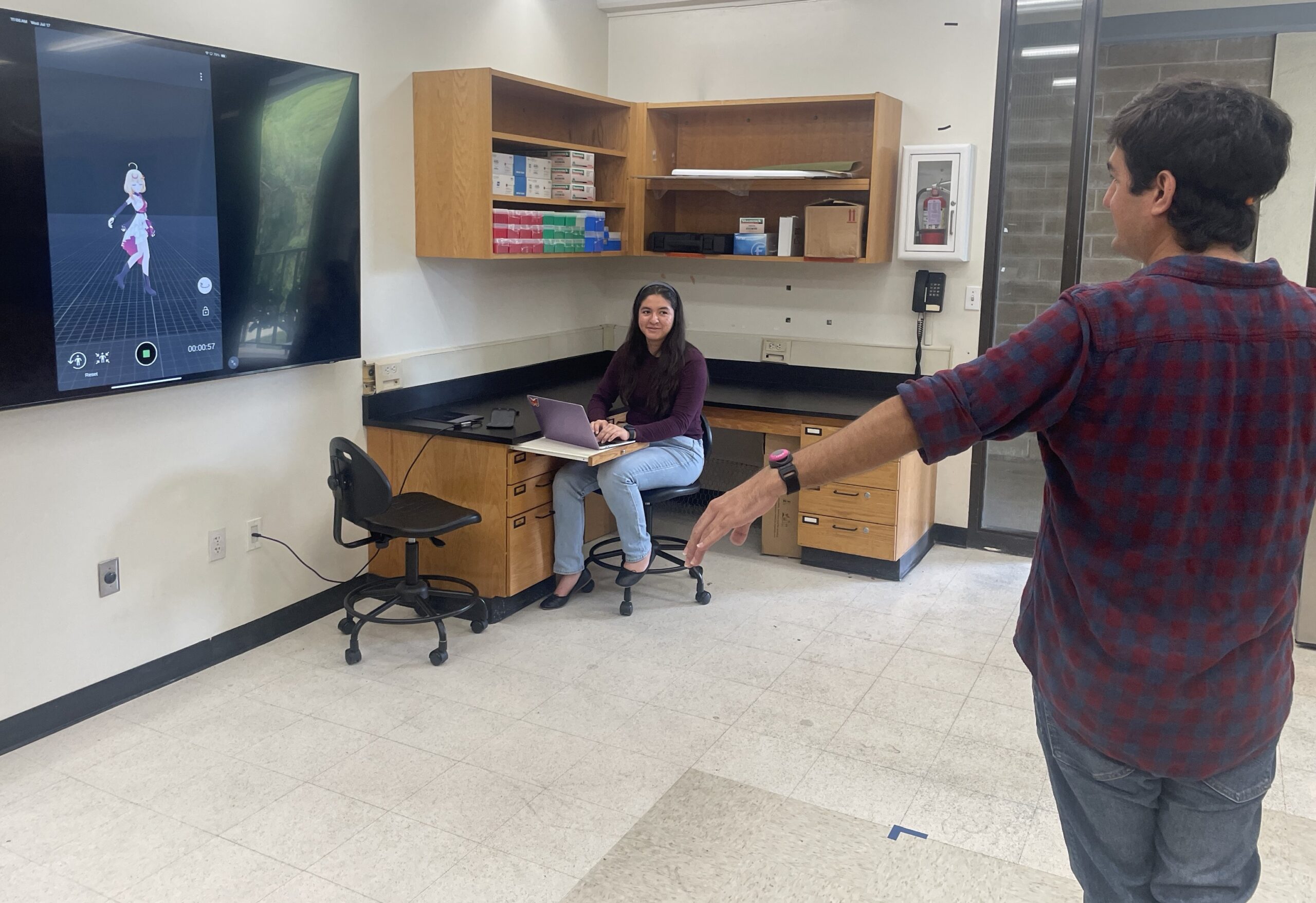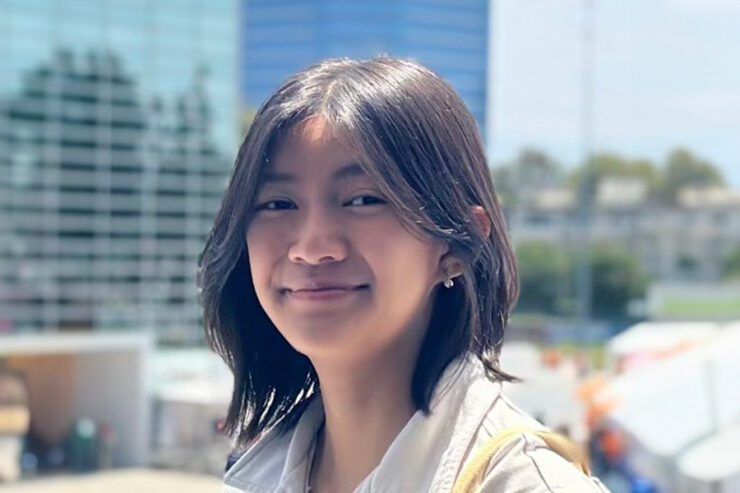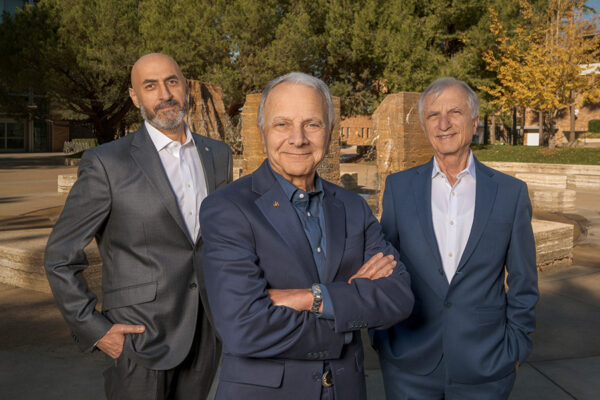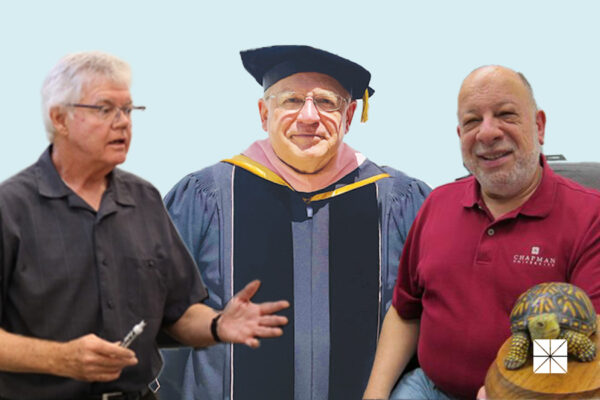Ellie Nguyen ’25, a computer science major at the Fowler School of Engineering, is transforming how people interact with musical instruments through Chapman University’s Summer Undergraduate Research Fellowship (SURF). Recognizing the challenges posed by traditional instruments—often expensive and difficult to learn—Nguyen’s research focuses on developing a computer musical instrument that anyone can play with ease.
“I wanted to make it easier for others to have the opportunity to enjoy creating music as much as I do without the burdens that come with traditional musical instruments,” said Nguyen. “Factors such as training, cost and mobility requirements may prohibit certain individuals from ever picking up a musical instrument, especially those with motor or cognitive disabilities.”
The innovative instrument, which utilizes sensors, elastic fabric displays and computer-generated sounds, allows users to control music by touching a fabric surface. This user-friendly design opens up new possibilities for creative expression, particularly for those who find conventional instruments inaccessible.

“My team, my mentor Franceli Cibrian, and I created a design keeping in mind that we wanted users to have a natural experience,” said Nguyen. “We found that we can use a flexible fabric as a surface that the user can interact with. This was an effective approach because it requires little-to-no training to use.”
The instrument uses sensors that detect various interactions, such as proximity and touch. The data collected by these sensors can be used to influence musical outcomes, including pitch, volume and duration. The project also incorporates the Pure Data programming language, chosen for its versatility in sound creation and visualization.
“We’re using some music theory in our design,” said Nguyen. “The instrument can autoplay notes and create complimentary sounds that provide support to the users, so they wouldn’t need prior training in order to sound good.”
The current prototype enables users to interact with the instrument in several ways. By touching conductive threads embedded in the fabric, they can control which notes are played, and they also have the ability to hold down multiple notes simultaneously. Users can adjust the duration of the notes they play and switch between C major and C minor scales with the flip of a switch. Additionally, the prototype responds to varying levels of pressure, allowing users to add kick and boom sounds by applying force to the fabric.
Watch Ellie Nguyen demonstrate the musical instrument she developed for her SURF project.
“I gained valuable experience in research, project management and communicating to an audience,” said Nguyen of her experiences in the SURF Program. “There’s a lot of freedom for me to develop a plan and to learn the technical skills I need for the job. I think these are important skills in the field of engineering.”
The opportunity to do hands-on research has influenced Nguyen’s approach to problem-solving and innovation. Nguyen constantly considers the needs and experiences of the user, allowing her to refine her ideas and solutions to better meet the user’s needs.
“I enjoy music and playing piano, and I just wanted to share that with others, especially those who are discouraged from playing music due to disabilities,” said Nguyen. “I thought having this sort of computer technology would assist users with any roadblocks they might be experiencing in creative musical practice.”




